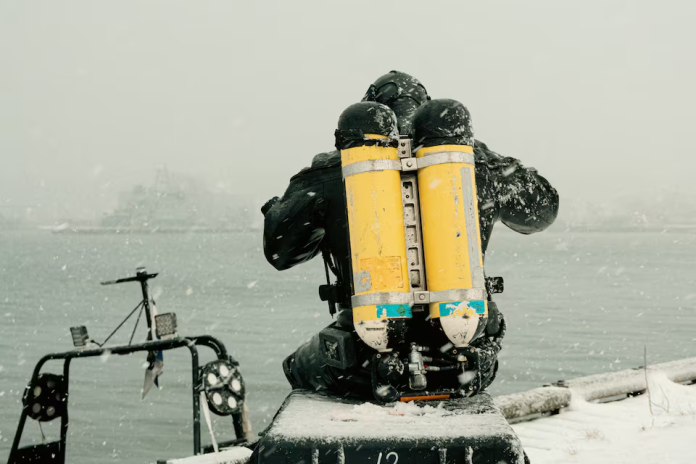30 NATO ships and 4,000 troops travelled to the Baltic Sea for one of the largest naval drills in northern Europe hours after two communication cables were severed, according to Reuters.
The 12-day Freezing Winds drill was part of NATO’s efforts to reinforce infrastructure security in waters through which 15% of the world’s shipping passes. Commander Arlo Abrahamson, a spokesperson for NATO’s Allied Maritime Command, said:
NATO is stepping up patrols, … allies are investing in innovative technologies that can help better secure these assets.
The Baltic Sea borders eight NATO countries and Russia. Since the war broke out in Ukraine, at least three incidents of possible sabotage have occurred on more than 40 telecommunications cables and critical gas pipelines.
On the third day of the exercise, German Navy commander Beata Król attempted to launch an underwater drone from her demining vessel Weilheim to inspect the seabed. However, after a 30-minute launch delay, the drone froze due to a winter storm.
NATO is also shifting its fleet of six ships to track suspicious underwater activity. The ships will use hull-mounted sonar that scans the seabed, deploys drones capable of taking underwater footage and experienced divers. However, the fleet’s authority was still limited, Król noted.
We are a defensive alliance, so by conducting training and exercising, also in areas which are crucial with underwater infrastructure, we show presence and prevent rather than actively engage.
Underwater cable rupture
Security sources claimed that the Chinese bulk carrier Yi Peng 3, which left the Russian port of Ust-Luga on 15 November, was responsible for breaking two underwater cables in Swedish economic waters between 17 and 18 November. The vessel allegedly dragged its anchor across the seabed.
As of Monday, the Yi Peng 3 was in Danish economic waters under surveillance by NATO member naval vessels. Sweden, meanwhile, called for it to return for investigation. Politicians accused the Chinese vessel of sabotage, but authorities failed to provide evidence that its actions were deliberate.
This case is similar to last year’s incident when the Chinese ship NewNew Polar Bear damaged two cables connecting Estonia to Finland and Sweden, as well as the Estonia-Finland gas pipeline.
China pledged to help with the investigation, whereas Russia denied any involvement in the alleged sabotage.
Meanwhile, German Lieutenant-General Hans-Werner Wiermann, who headed the submarine infrastructure coordination team at NATO headquarters until March, said no pipeline or cable could be permanently guarded. Wiermann stated that some companies were already laying alternate routes to ensure that critical facilities would continue to operate even if one of the cables was severed.
